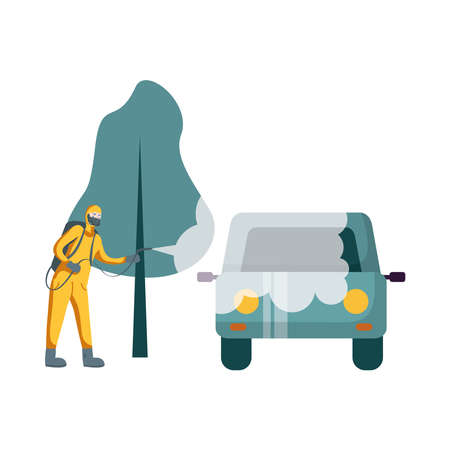1. Understanding Fuel Efficiency
Fuel efficiency is a crucial factor in determining how much money you spend on gas and how far your vehicle can travel on a single tank. Understanding the key elements that affect fuel efficiency can help you make smarter driving decisions and save money at the pump.
1. Vehicle Design
The way a vehicle is built has a significant impact on its fuel consumption. Different factors such as weight, aerodynamics, and engine technology influence how efficiently a car uses fuel.
| Factor | Effect on Fuel Efficiency |
|---|---|
| Vehicle Weight | Heavier vehicles require more fuel to move, reducing efficiency. |
| Aerodynamics | Sleek, aerodynamic shapes help reduce air resistance, improving fuel economy. |
| Engine Type | Modern fuel-efficient engines, such as hybrid or turbocharged options, consume less fuel. |
2. Driving Habits
How you drive has a direct impact on your fuel efficiency. Aggressive driving, frequent braking, and rapid acceleration all increase fuel consumption.
Tips for Better Fuel Efficiency
- Drive at a steady speed and avoid sudden acceleration.
- Use cruise control on highways to maintain a consistent speed.
- Reduce idling time—turn off the engine when parked.
3. Fuel Type
The type of fuel you use can also make a difference in your vehicle’s efficiency. Some fuels burn more efficiently than others, helping you get better mileage.
Choosing the Right Fuel
Check your vehicle’s owner’s manual to ensure you are using the recommended fuel type. Some engines perform better with premium fuel, while others run efficiently on regular gas.
2. Smart Driving Habits to Maximize MPG
Improving your fuel efficiency isn’t just about the car you drive—it’s also about how you drive. Small changes to your driving habits can make a big difference in how much gas you use. By adopting the right techniques, you can boost your miles per gallon (MPG) and save money at the pump.
Smooth Acceleration for Better Fuel Economy
Sudden acceleration burns more fuel than gradual speed increases. Pressing too hard on the gas pedal forces the engine to work harder, using more gasoline. Instead, accelerate smoothly and steadily to reduce fuel consumption and maintain efficiency.
Proper Braking to Avoid Wasted Gas
Frequent braking wastes gas. When you speed up just to brake again, you’re using unnecessary fuel. Try to anticipate traffic flow and slow down gradually instead of stopping abruptly. Coasting to a stop whenever possible helps conserve fuel and reduces wear on your brakes.
Optimal Cruising Speeds to Maximize MPG
Driving at high speeds can significantly reduce fuel efficiency. Most vehicles achieve their best fuel economy between 45-65 mph. Once you exceed that range, wind resistance increases, making your engine work harder. Follow speed limits and use cruise control on highways to maintain a steady pace.
| Driving Habit | Fuel-Saving Benefit |
|---|---|
| Smooth Acceleration | Reduces engine strain and improves fuel use |
| Proper Braking | Prevents wasted energy and conserves gas |
| Optimal Cruising Speed | Maintains efficiency and reduces fuel consumption |
Avoid Idling to Save Fuel
Idling burns fuel unnecessarily. If you’re stopped for more than a minute, consider turning off your engine. Many modern cars have start-stop technology to help with this. Avoid letting your car idle for long periods, especially in drive-thrus or at long stoplights.
Lighten Your Load for Better Mileage
Extra weight in your vehicle forces the engine to work harder. Remove unnecessary items from your trunk or backseat to improve efficiency. Carrying roof racks or cargo carriers also increases wind resistance, lowering MPG, so remove them when not in use.
Plan Your Trips Efficiently
Short trips and frequent stops can lower fuel efficiency. Try to combine errands into one trip to reduce the number of times you start your engine. Whenever possible, plan your route to avoid heavy traffic and take the most direct path to your destination.
By adjusting your driving habits, you can make every gallon of gas last longer. These smart techniques not only save money but also help reduce emissions and extend the life of your vehicle.

3. Vehicle Maintenance for Better Gas Mileage
Keeping your car properly maintained is one of the most effective ways to improve fuel efficiency. Regular maintenance ensures that your engine runs smoothly, your tires are at the right pressure, and your oil is fresh—all of which contribute to better gas mileage. Let’s explore some essential maintenance tips that can help you save money at the pump.
Check and Maintain Proper Tire Pressure
Underinflated tires create more resistance against the road, causing your engine to work harder and use more fuel. On the other hand, properly inflated tires reduce rolling resistance and improve fuel efficiency.
Recommended Tire Maintenance:
- Check tire pressure at least once a month.
- Follow the manufacturer’s recommended PSI (found in the owner’s manual or on the drivers side door frame).
- Use a reliable tire pressure gauge for accuracy.
- Keep tires properly aligned to prevent uneven wear.
Regular Engine Tuning
A well-tuned engine burns fuel more efficiently. Ignoring issues like a dirty air filter, worn-out spark plugs, or a malfunctioning oxygen sensor can lead to reduced fuel economy.
Engine Maintenance Tips:
| Component | Maintenance Frequency | Benefit |
|---|---|---|
| Air Filter | Every 12,000–15,000 miles | Improves airflow and fuel combustion |
| Spark Plugs | Every 30,000–100,000 miles | Ensures efficient fuel ignition |
| Oxygen Sensor | Every 60,000–90,000 miles | Helps regulate fuel mixture for efficiency |
Regular Oil Changes
Fresh motor oil helps keep your engine lubricated and running smoothly. Old, dirty oil increases friction and makes your engine less efficient.
Oil Change Best Practices:
- Use the right type of oil recommended for your car.
- Change your oil as per the owner’s manual (typically every 3,000–7,500 miles).
- Use high-quality synthetic oil for better engine performance.
- Check oil levels regularly and top off if needed.
By staying on top of these maintenance tasks, you can keep your vehicle running efficiently and maximize your gas mileage.
4. Choosing the Right Fuel and Additives
Understanding what type of fuel your car needs and how fuel additives impact performance can help you maximize fuel efficiency and save money in the long run. Let’s break down the key differences between fuel types and whether additives are worth using.
Types of Fuel and Their Impact on Fuel Efficiency
Not all fuel is created equal, and choosing the right one can make a difference in your car’s efficiency. Here’s how different fuel options compare:
| Fuel Type | Impact on Performance & Efficiency |
|---|---|
| Regular Gasoline (87 Octane) | Best for most standard vehicles; provides reliable performance and good fuel economy. |
| Mid-Grade Gasoline (89-90 Octane) | Slightly higher octane offers minimal benefits for cars that don’t require it. |
| Premium Gasoline (91-94 Octane) | Necessary for high-performance engines; using it in a regular car won’t improve efficiency. |
| Diesel | More energy-dense than gasoline, providing better fuel economy for diesel engines. |
| E85 (Ethanol Blend) | Cheaper per gallon but burns faster, offsetting cost savings. |
Do Fuel Additives Really Help?
Fuel additives are marketed as a way to clean your engine, boost fuel economy, and improve performance. But do they really work? Here’s a look at common fuel additives and their effectiveness:
Detergents
Most gasoline already contains detergents to prevent carbon buildup in the engine. Buying “Top Tier” gasoline ensures your fuel has high-quality additives.
Octane Boosters
These are only useful for high-performance engines that require higher octane levels. If your car runs fine on regular gas, an octane booster won’t improve efficiency.
Fuel Stabilizers
Helpful for vehicles that sit unused for long periods, such as seasonal cars or lawn equipment, but unnecessary for daily drivers.
Injector Cleaners
Can help if your fuel injectors are dirty, but regular maintenance and using high-quality gasoline usually prevent significant buildup.
Best Practices for Fuel Selection
Using the right fuel and additives boils down to following your manufacturer’s recommendations. If your car is designed for regular gasoline, there’s no need to spend extra on premium fuel. Similarly, additives can sometimes help, but they’re not a magic solution for improving fuel economy. Driving habits and maintenance play a much bigger role in long-term fuel efficiency.
5. Technology and Tools to Improve Fuel Efficiency
Find out how modern technology, such as fuel economy apps and advanced vehicle features, can help you save money at the pump.
Fuel Economy Apps
Smartphone apps can provide real-time data on fuel usage, route optimization, and driving habits. These apps help you track fuel consumption and make smart decisions to improve gas mileage.
Popular Fuel Economy Apps
| App Name | Key Features |
|---|---|
| GasBuddy | Finds the cheapest gas stations near you |
| Fuelly | Tracks fuel economy and maintenance |
| Drivvo | Monitors fuel usage and vehicle expenses |
| Waze | Provides real-time traffic updates for efficient routes |
Advanced Vehicle Features
Many modern cars are equipped with technology designed to maximize fuel efficiency. These smart features help you get the most miles per gallon.
Fuel-Saving Car Features
- Eco Mode: Adjusts engine and transmission settings to optimize fuel efficiency.
- Stop-Start Technology: Automatically turns off the engine when idling and restarts it when needed.
- Active Grille Shutters: Improves aerodynamics by closing airflow when cooling isn’t required.
- Tire Pressure Monitoring System (TPMS): Alerts you when tire pressure is low, ensuring optimal rolling resistance.
Telematics and GPS Navigation
Telematics systems and GPS navigation can enhance fuel efficiency by providing the best routes, minimizing idle time, and analyzing driving behavior.
How Telematics Help Save Fuel
- Route Optimization: Finds the fastest and most fuel-efficient routes.
- Driving Behavior Monitoring: Identifies habits like hard braking and acceleration that waste fuel.
- Maintenance Alerts: Ensures timely service to keep your engine running efficiently.
Hybrid and Electric Vehicle Technology
Hybrid and electric vehicles (EVs) use advanced technology to reduce or eliminate fuel consumption, leading to significant long-term savings.
Fuel Efficiency Benefits
- Hybrids: Combine gas and electric power to enhance fuel economy.
- Plug-In Hybrids: Offer an extended electric-only range before switching to gas.
- EVs: Run entirely on electricity, eliminating fuel costs.
Final Thoughts
Technology has made it easier than ever to improve fuel efficiency and save money on gas. By leveraging fuel economy apps, utilizing advanced vehicle features, and considering hybrid or electric options, you can maximize your savings at the pump.


